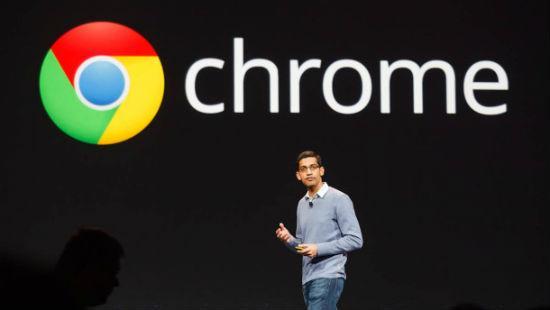
Google has made it crystal clear that they’re ready to switch it up in 2013, starting with a change in who will oversee Android. Andy Rubin, the former head of Android is out, but staying with Google. Under Rubin's direction, Android became the most widely used mobile operating system in the world. In other words, his departure is important for Google and Android.
In his place, CEO Larry Page announced on his blog that another Google veteran will fill the role. Sundar Pichai began as Vice President of Product Management in 2004 overseeing many early Google services such as iGoogle and Desktop Search. Fast forward to 2011 and Pichai was Senior Vice President of Google Chrome and Apps, including the Chrome browser and operating system, Gmail, Calendar, Docs, and Drive. Word around Google-town is that he has an enthusiastic spirit to boot.
But is he the right guy for the job? There’s no doubt he has a massive role to fill. Android has been on the upswing of Andy Rubin’s direction for the past five years. Only a few days ago, have we begun to see Google’s rise to an astounding 1.4 billion activations slow. Pichai comes in as the new guy and as a man who is expected to continue that upwards momentum.
Android is something of a silver platter to Google. As I’ve stated in other editorials, it’s not only the operating system that’s important; it’s delivering products with its services to consumers that drives revenue. Samsung has done this effectively with its Galaxy devices. Google partners with many manufacturers who slap a version of Android on the motherboard, give it a fancy name, and sell them. Selling is key, because it drives activations. Though it sounds easy in practice, Android has, to an extent, sold itself the past few years as the antidote to Apple’s closed ecosystem. Many manufacturers have licensed Android and used the operating system as a basis for their own user interface.
We’ve seen updates to Android’s code since inception, from the lock screen to Project Butter, but it’s unclear where Android is heading. Google I/O should clear this up, but I’m impatient and I already know what I want to see from Pichai as head of Android.
My hope for Pichai is that we see his influence in Chrome OS make its way into the Android operating system. I'm ready for some Chromezoid. I’ve been a fan of Chrome OS’ web-based approach since I picked up a Samsung Series 5 Chromebook a couple months ago. I’ve advocated cloud computing and the advantages to having all of your information stored outside of the hard drive. It’s refreshingly simple to know your data is always closeby when you’re connected.
And we're always connected. Though some are hard-pressed to fully adapt to the cloud and its services, it's only a matter until we're pushed to. From email, to files, to music, and apps, the cloud provides a safe haven for your resources, while being supremely convenient. All you need is an Internet connection.
But where Chrome OS has lost traction is in adoption. This is mainly because of its lackluster selection of web-based apps and skepticism of web-based computing. I’ve mentioned that the web-based applications on Mozilla’s Firefox OS which would run on a smartphone is an enticing idea.
Where Android can benefit from Chrome OS is in its innate reliance on Internet connectivity. Similar to how consumers expect 4G LTE speeds in the States, consumers expect to be on the Web. This is where Pichai can come in and incorporate bits and pieces of Chrome OS, the web-based operating system unique to Chromebooks, into Android. There’s a strong push for HTML5 Web Standards and Chrome OS’ web-based history can drastically improve the user experience of some of the apps in the Google Play Store that are already based on the new standard.
I’ve said in my editorial of Firefox OS and its importance, you can be assured that web-based computing and HTML5 will be a topic when the first open-source, and web-based operating systems trickle into consumer hands. With Google I/O just around the corner, Pichai has an opportunity to show us where Android is going and how far it will get under his direction, and I think he's coming in at an interesting point for the operating system.
With Google’s recent push for affordable smartphones like their Nexus 4, Google has the opportunity to use Chrome OS as a driver for price reduction in end product hardware as well. Very little intense computing is derived from web-based applications. The main factor you must consider when using a Chromebook is the amount of RAM the Chrome Browser uses when it’s loaded with tabs. The Samsung Series 5 Chromebook costs $249 direct from Google and packs very respectable specifications. With a dual core Exynos 5250 processor and 2GB of RAM, it’s very competitive with the high-end Android smartphones of last year. Point being, Chrome OS does not require system heavy computing, and the web-based approach is a good opportunity for Google to offer alternative smartphones to their price-conscious Nexus lineup.
Where do you think the open source Android operating system will go under new direction? Do you believe Android should kill off Chrome OS and push the features to smartphones running Android? Or do you think Android is fine how it is and the other open source platforms like Firefox and Tizen are no reason for Android to evolve its open source mentality? Let me know what you’re thinking down below. Thanks!
Image via CNET.